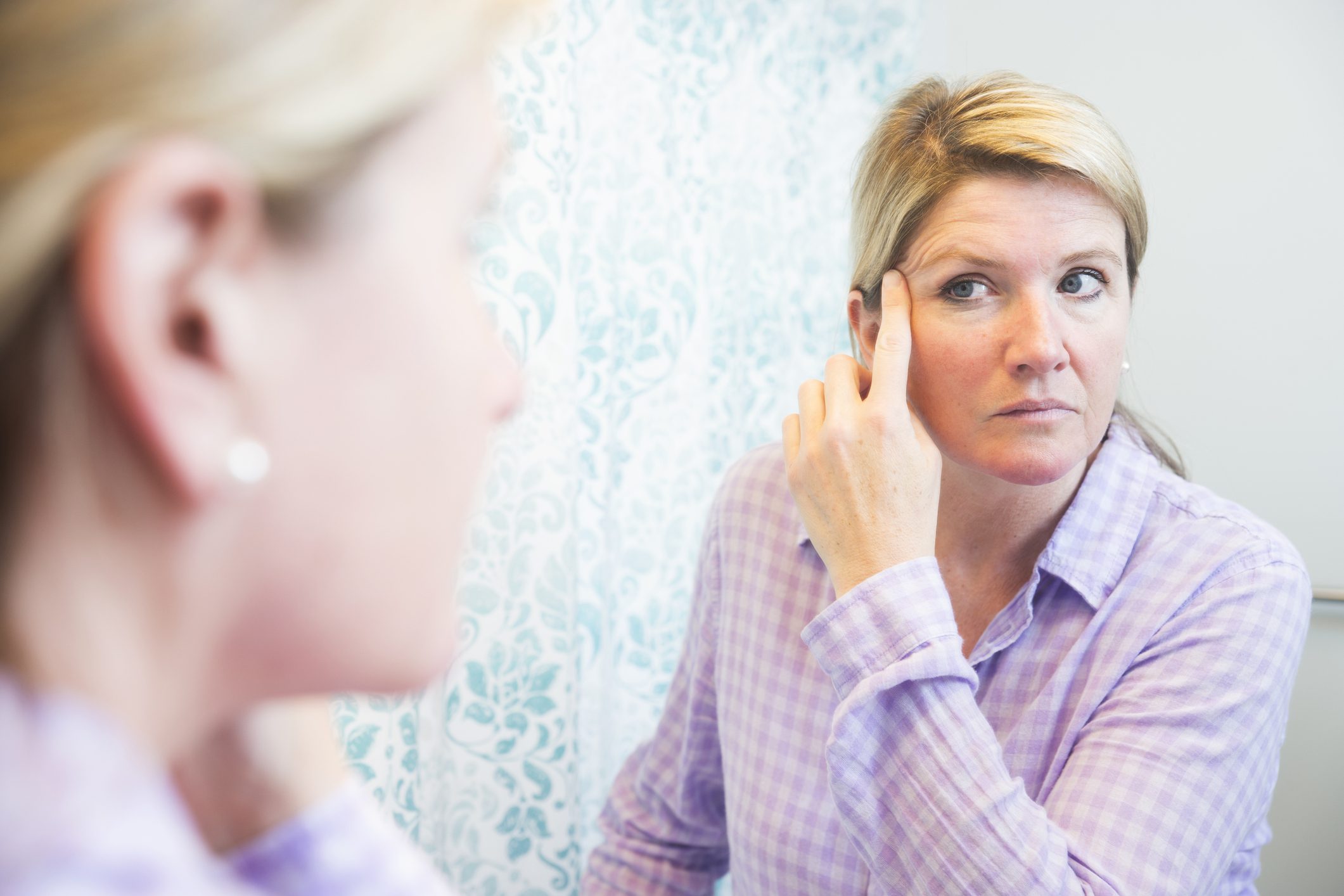It’s been more than 2,000 years since Hippocrates, the Greek physician known as the Father of Medicine, is believed to have said that “all disease begins in the gut.”
Millenia later, we’re still uncovering all the complexities of the human gut microbiome. But if Hippocrates knew what we know now, I think it’s fair to say that he might have added a little something to his statement—anti-aging begins in the gut, too.
The more researchers learn about the gut, the more the connection between its health and the aging process deepens.
What Gut Health Has to Do With Aging
When you treat it right, your gut is on your side. From growing beneficial bacteria to reducing inflammation, it’s working hard to mitigate the negative side effects of aging and allow you to step powerfully into the prime of your life.
A healthy gut helps you maintain your vitality and youthfulness as you age. Here’s how:
1. A Healthy Gut Better Absorbs Nutrients
Our bodies get worse at absorbing nutrients as we age. Even if you’re eating a relatively nutrient-rich diet, your body probably isn’t breaking down key vitamins like vitamin D and vitamin B12 as efficiently as it used to.
This can lead to deficiencies in key nutrients right when your body needs them the most.
But when you fuel your gut with the food it loves, it will start to grow beneficial bacteria that helps build up your intestinal lining, preventing the bad stuff from leaking out and making it easier for your body to utilize all the nutrition.
Curious how to promote the growth of that good bacteria and prevent the leakage? Probiotics can make that happen. One study found that just four weeks after taking a probiotic, the gut compositions of older adults significantly improved to include more beneficial bactieria.1
2. A Healthy Gut Improves Cognitive Function
I’m not a fan of the stereotype of going a bit nutty or forgetful once you hit a certain age—I know that wisdom comes with age. But I also know that as you get older, it’s a lot easier to maintain your mental clarity, focus, and function if you’ve got a healthy gut.
In one study, researchers looked at how probiotics impacted brain function in people older than 65. They found that in just 12 weeks of adding a probiotic to their regimen, their inflammation-causing bacteria had drastically gone down, while their mental flexibility scores went way up.
And not only that—their mood got better, too. As their gut health improved, their stress levels decreased, showcasing the gut connection to physical and mental health. 2
In another exciting study, researchers put young microbiota in older mice. Following the transplantation, their cognitive impairments slowed down and some of their chemicals involved with learning and memory were restored.3 Turns out, you can teach an old dog (or mouse!) new tricks.
3. A Healthy Gut Reduces the Appearance of Aging
Beauty is possible at every age. But I know that for some people, it doesn’t feel great to see the physical signs of aging like sagging skin and wrinkles. The solution? A healthy gut.
Researchers have called the gut microbiome a “major regulator of the gut-skin axis,”4 meaning that if your gut isn’t up to snuff, your skin won’t be either.
It all comes back to nutrient absorption, specifically the absorption of collagen. Your body needs collagen to do tons of jobs, like keeping bones strong and flexible, and maintaining your skin health and elasticity.
As you age, though, your body gets worse at producing and absorbing collagen, and the remaining collagen has to do a lot of work on a limited budget. It will tend to other jobs and neglect your skin, potentially leaving it dry, red, sagging, or wrinkled. Researchers found that people with poor gut health were more likely to have skin conditions like acne, psoriasis, and visible signs of aging.4
Give your body a collagen boost and you could see the results when you look in the mirror. I love sipping on bone broth for some extra collagen. And since Vitamin C can help stimulate collagen production, I also make sure to get in some citrus and berries when I know I need to ramp up my intake.
It can be tough to get enough collagen without supplemental help. Add a scoop of my Collagen Peptides Powder to any beverage or sauce so that you know you’re getting enough of this vital protein every day! Try it now.*
4. A Healthy Gut Reduces Inflammation
An unhealthy gut and inflammation go hand in hand—the two conditions exacerbate each other. In fact, they’re so tied that more than a decade ago, researcher Claudio Franceschi coined the term “inflammaging,” referring to the low-grade inflammation that contributes to the negative effects of aging you might feel.5
Improving your gut health, then, is one way to offset the vicious cycle.
Following the Mediterranean Diet is one proven way to do that. One study tracked older people who adhered to the diet, which is high in lean protein, healthy fats, whole grains, and non-starchy veggies. After a year, the researchers found significant changes to their microbial balance, resulting in lower inflammatory and frailty markers, and higher cognitive function.6
You may be unknowingly eating foods that are triggering inflammation in your body. My 21-Day Breakthrough Intolerance Cleanse helps you discover which foods are best on your gut, allowing you to lose weight, get better sleep, and reap the anti-aging benefits of a healthy gut. Get started today!*
5. A Healthy Gut Helps You Live Longer
Keep your gut healthy, and you may just tack on a few years to your life.
We are still learning about every little thing that influences our gut microbiome throughout our life, but we know that tons of factors—the way we were delivered at birth, our childhood diets, and our environments—play an early role.
Later, though, your gut microbiome continues to change and evolve. And the more it changes, the better. One study found that people whose gut microbiomes continued to transform with age had more chronic disease-fighting compounds in their gut and were more likely to live longer.7
Another study analyzed the guts of healthier older people, and those experiencing issues like frailty and immune dysregulation. They found that in the guts lacking in beneficial microbes, inflammation was triggered, setting off negative effects of aging.8
Ways to Heal Your Gut Fast
There’s something very empowering about learning about the gut’s impact on aging. Once you realize how many anti-aging benefits happen when you’ve got a healthy gut, you’re going to want to get started healing it today—and you can.
There are several simple, manageable fixes that can have you seeing positive anti-aging benefits fast. Here are just a few:
- Eat polyphenols. Found in foods like berries, dark chocolate, red wine, green tea, onions, and broccoli, these compounds can help promote the growth of healthy gut bacteria and even inhibit the growth of harmful pathogens.9 Remember that there can be too much of a good thing, though—ingredients like red wine and chocolate should be consumed in healthy amounts, and from sources you trust. I get my delicious reds from Dry Farm Wines, since I know they’re tested for purity and don’t have any sugar or additives.**
- Eat a diverse diet. I know how easy it can be to get stuck in a rut when it comes to preparing and eating food, but it’s incredibly important to feed your gut with a wide variety of nutrients. One way to do that? Eat fermented foods. I’ll admit they’re not always my favorite. But give kimchi, sauerkraut, or homemade kombucha a try. They’ll help increase the diversity of your microbiome and lower inflammation—and you might find you love them!10
- Exercise. You already know exercise has tons of benefits, like improving your cardiovascular health and helping to reduce stress. Turns out, it can also positively diversify your gut microbiome, giving you more tools to fight off disease.11
- Get better sleep. I know. It’s easier said than done. But researchers have found that prioritizing quality rest and sticking to the circadian rhythm—rather than keeping rock star hours—helps to promote a healthy gut.12
Feel like you’ve tried everything when it comes to better sleep…but you still toss and turn? That was me, too. So, I designed Sleep Candy™, a non-habit-forming sleep supplement with a blend of ingredients that help you doze off into restful sleep and wake up ready to tackle your day. Want to give it a try? Get it here.*
Not all anti-aging remedies require tons of money, needles, or unsustainable lifestyle changes. You can start making some of these changes today, beginning the process to transform and heal your gut from within.
*These statements have not been evaluated by the Food & Drug Administration. Products mentioned are not intended to diagnose, treat, cure, or prevent any disease. The views in this blog by JJ Virgin should never be used as a substitute for professional medical advice. Please work with a healthcare practitioner concerning any medical problem or concern.
**I couldn’t make it without supportive relationships, and I bet you feel the same! That’s why my team and I offer you products and services we believe in. If you happen to purchase something I recommend here, I may receive some kind of compensation. However, I only bring you partners whose content and core values will serve you with the same commitment to excellence my team and I strive for every day. Please be in touch with any concerns.
Sources:
- Hutchinson, A. N., Bergh, C., Kruger, K., Sűsserová, M., Allen, J., Améen, S., & Tingö, L. (2021). The Effect of Probiotics on Health Outcomes in the Elderly: A Systematic Review of Randomized, Placebo-Controlled Studies. Microorganisms, 9(6), 1344. https://doi.org/10.3390/microorganisms9061344
- Kim, C. S., Cha, L., Sim, M., Jung, S., Chun, W. Y., Baik, H. W., & Shin, D. M. (2021). Probiotic Supplementation Improves Cognitive Function and Mood with Changes in Gut Microbiota in Community-Dwelling Older Adults: A Randomized, Double-Blind, Placebo-Controlled, Multicenter Trial. The journals of gerontology. Series A, Biological sciences and medical sciences, 76(1), 32–40. https://doi.org/10.1093/gerona/glaa090
- Boehme, M., Guzzetta, K.E., Bastiaanssen, T.F.S. et al. Microbiota from young mice counteracts selective age-associated behavioral deficits. Nat Aging 1, 666–676 (2021). https://doi.org/10.1038/s43587-021-00093-9
- Salem, I., Ramser, A., Isham, N., & Ghannoum, M. A. (2018). The Gut Microbiome as a Major Regulator of the Gut-Skin Axis. Frontiers in microbiology, 9, 1459. https://doi.org/10.3389/fmicb.2018.01459
- Franceschi, C., Bonafè, M., Valensin, S., Olivieri, F., De Luca, M., Ottaviani, E., & De Benedictis, G. (2000). Inflamm-aging. An evolutionary perspective on immunosenescence. Annals of the New York Academy of Sciences, 908, 244–254. https://doi.org/10.1111/j.1749-6632.2000.tb06651.x
- Ghosh, T. S., Rampelli, S., Jeffery, I. B., Santoro, A., Neto, M., Capri, M., Giampieri, E., Jennings, A., Candela, M., Turroni, S., Zoetendal, E. G., Hermes, G. D. A., Elodie, C., Meunier, N., Brugere, C. M., Pujos-Guillot, E., Berendsen, A. M., De Groot, L. C. P. G. M., Feskins, E. J. M., Kaluza, J., … O’Toole, P. W. (2020). Mediterranean diet intervention alters the gut microbiome in older people reducing frailty and improving health status: the NU-AGE 1-year dietary intervention across five European countries. Gut, 69(7), 1218–1228. https://doi.org/10.1136/gutjnl-2019-319654
- Wilmanski, T., Diener, C., Rappaport, N., Patwardhan, S., Wiedrick, J., Lapidus, J., Earls, J. C., Zimmer, A., Glusman, G., Robinson, M., Yurkovich, J. T., Kado, D. M., Cauley, J. A., Zmuda, J., Lane, N. E., Magis, A. T., Lovejoy, J. C., Hood, L., Gibbons, S. M., Orwoll, E. S., … Price, N. D. (2021). Gut microbiome pattern reflects healthy ageing and predicts survival in humans. Nature metabolism, 3(2), 274–286. https://doi.org/10.1038/s42255-021-00348-0
- Pellanda, P., Ghosh, T. S., & O’Toole, P. W. (2021). Understanding the impact of age-related changes in the gut microbiome on chronic diseases and the prospect of elderly-specific dietary interventions. Current opinion in biotechnology, 70, 48–55. https://doi.org/10.1016/j.copbio.2020.11.001
- Wan, M. L. Y., Co, V. A., & El-Nezami, H. (2021). Dietary polyphenol impact on gut health and microbiota. Critical reviews in food science and nutrition, 61(4), 690–711. https://doi.org/10.1080/10408398.2020.1744512
- Leeuwendaal, N. K., Stanton, C., O’Toole, P. W., & Beresford, T. P. (2022). Fermented Foods, Health and the Gut Microbiome. Nutrients, 14(7), 1527. https://doi.org/10.3390/nu14071527
- Mailing, L. J., Allen, J. M., Buford, T. W., Fields, C. J., & Woods, J. A. (2019). Exercise and the Gut Microbiome: A Review of the Evidence, Potential Mechanisms, and Implications for Human Health. Exercise and sport sciences reviews, 47(2), 75–85. https://doi.org/10.1249/JES.0000000000000183
- Matenchuk, B. A., Mandhane, P. J., & Kozyrskyj, A. L. (2020). Sleep, circadian rhythm, and gut microbiota. Sleep medicine reviews, 53, 101340. https://doi.org/10.1016/j.smrv.2020.101340






